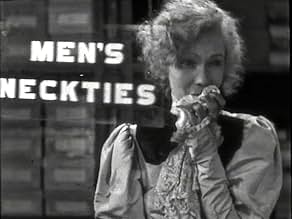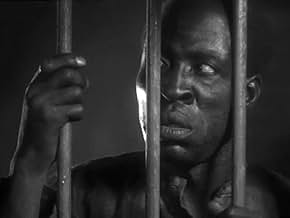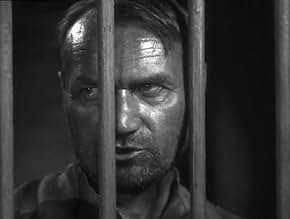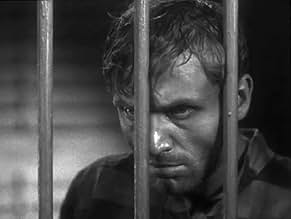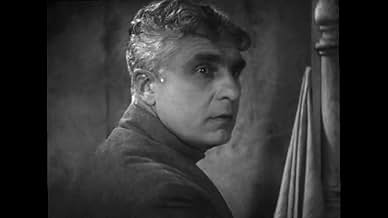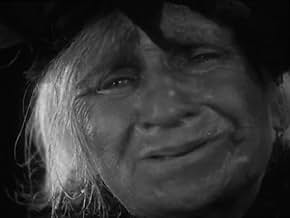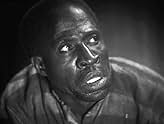Adicionar um enredo no seu idiomaIn basis of film are facts from biography of the American writer O. Henry and two his short stories.In basis of film are facts from biography of the American writer O. Henry and two his short stories.In basis of film are facts from biography of the American writer O. Henry and two his short stories.
- Direção
- Roteiristas
- Artistas
Sergey Sletov
- Jailguard
- (as S. Sletov)
- Direção
- Roteiristas
- Elenco e equipe completos
- Produção, bilheteria e muito mais no IMDbPro
Avaliações em destaque
A little foreword, because this is one of the best films of the first 30 years.
Kuleshov was an early master worth, to my mind, two or more Chaplins. Forget that you know him from the Soviet collective, he was very fond of Hollywood and America. In the mid-20's he would drive a Ford sports car around Moscow. His three most famous films are about Americans. Oh, he was closely acquainted to Stalin which subsequently earned him numerous posts in the arts, but only because you had to be in those days. He must have seen the signs around him. His friend in the avant-garde, the poet Mayakovsky, had 'committed suicide' in 1930.
So it was the early 30's and collectivization meant liquidation into one image, one identity, one big collective household (the kholkoz). For a few years, Soviet film was placed in the service of education, political education. Kuleshov worked there, as did Vertov and others. Eisenstein had embarked on the Mexican adventure and would come back to find that one image meant the image of a strong czar. He rhapsodized about it in Nevsky, had to (his Bezhin Meadow had been axed).
In '32, Soviet film was taken from education and relegated to entertainment for the proles, the simplistic artifact that scholars will tell you was dubbed 'socialist realism'. This realism was another false - staged - image; content worker-bees triumphing in the fields in the name of revolution. So this was about the last year a film like we have here was at all possible. Medvedkin did Schastye in '34 and that was that until Kalatozov (a Kuleshov pupil). The word on the handful of films Kuleshov completed after, anyway, is that they are all in this dumbed-down 'realist' mode.
Now Kuleshov was a master because he knew that cinema meant not just the image, but the air, the cinematic light in the space leading up to the eye. That air was malleable, since it was no-thing, which is the gist of the experiment named after him. The space could be constructed, constructed to have psychology.
So forget that a lot of critics, myopic as usual, read agitprop in his Mr. West film from '24 and casually dismissed as a 'romp'. The point was false images, staged reality, concealed as this romp, leading up to a show of proud Soviet regiments parading in the finale and a ministry-controlled radio station. You will know this is another masterpiece if you read what critics - at the time - had to say; "Kuleshov deprives reality of its reality" wrote O Brik, and I Popov judged the film to be "a failure" because of the "gap between the plot and the situations".
If you are like me, you will rejoice that this is all about deprived reality, the exercise of control over cinematic vision.
It all takes place in 1899 America, a writer has been imprisoned for embezzling funds from a Texas bank, apparently this is based on the case of O'Henry, a more recognizable name then than it is now, but instead of using the relative comfort he enjoys on account of being a writer to expose ugliness in the system, remember this was a time of famine in Ukraine and kulak purges, he does what?
He writes the stories that a woman in another unconnected segment, one of those gaps mentioned by critics, avidly devours for its noble characters and grandiose drama, all of it sentimental, romantic fluff. His creative insight on a prison bed, is that a writer has to write 'using not ink but the blood of others'. So of course, he writes about a fellow inmate he knows who is promised parole for doing an errand. But he writes high-minded fantasy instead of the real thing.
The inmate's story we see as another segment, and as a silent film-within! The main event is even photographed by a cameraman inside the film!
(the introduction to sound had taken place only the previous year, so the memory of silent cinema was fresh and potent, Kuleshov was trying to get the audience to associate the optimistic story of human triumph with something belonging to the past and being swept away. Clever!)
Back on the level of reality, the thing culminates instead of triumph with indignant loss and betrayal; the prisoner having carried out the task is thrown back into a cell, the woman marries the town sheriff who is nothing like the benevolent sheriff described in O'Henry's prose. The writer curls up in a ball, half-mad. But of course, all of this takes place in capitalist America so has to be about ugliness in the capitalist system. Why would the censors object?
Here's the genius of the thing; the inmate promised parole is a safe-cracker, and the errand is that he has to open up a safe without using explosives, so as not to destroy the valuables, on the level of reality these are important bank documents, in O'Henry's version it is a trapped child (wham-bang! you can read this two ways), so has to be subtle, has to use a light touch.
Now the film on the level of reality really 'blows up' when the outraged inmates go on a riot. It's all about people in revolt against state oppression, has been from the start - O'Henry's story was merely the betrayal of ideas. But Kuleshov's touch has to be light when he rails against the state, so what does he do to connect with back home, with the memory of actual Soviet revolt?
Why, he films the riot in rapid-fire Soviet montage, the only frantic bit in otherwise a stagebound - captive - imagination. The memory is the entirely cinematic memory-association with the images of Potemkin and Fall of Petersburg, the very cinema being censored in '32, the very memory of revolution being suppressed.
Kuleshov was an early master worth, to my mind, two or more Chaplins. Forget that you know him from the Soviet collective, he was very fond of Hollywood and America. In the mid-20's he would drive a Ford sports car around Moscow. His three most famous films are about Americans. Oh, he was closely acquainted to Stalin which subsequently earned him numerous posts in the arts, but only because you had to be in those days. He must have seen the signs around him. His friend in the avant-garde, the poet Mayakovsky, had 'committed suicide' in 1930.
So it was the early 30's and collectivization meant liquidation into one image, one identity, one big collective household (the kholkoz). For a few years, Soviet film was placed in the service of education, political education. Kuleshov worked there, as did Vertov and others. Eisenstein had embarked on the Mexican adventure and would come back to find that one image meant the image of a strong czar. He rhapsodized about it in Nevsky, had to (his Bezhin Meadow had been axed).
In '32, Soviet film was taken from education and relegated to entertainment for the proles, the simplistic artifact that scholars will tell you was dubbed 'socialist realism'. This realism was another false - staged - image; content worker-bees triumphing in the fields in the name of revolution. So this was about the last year a film like we have here was at all possible. Medvedkin did Schastye in '34 and that was that until Kalatozov (a Kuleshov pupil). The word on the handful of films Kuleshov completed after, anyway, is that they are all in this dumbed-down 'realist' mode.
Now Kuleshov was a master because he knew that cinema meant not just the image, but the air, the cinematic light in the space leading up to the eye. That air was malleable, since it was no-thing, which is the gist of the experiment named after him. The space could be constructed, constructed to have psychology.
So forget that a lot of critics, myopic as usual, read agitprop in his Mr. West film from '24 and casually dismissed as a 'romp'. The point was false images, staged reality, concealed as this romp, leading up to a show of proud Soviet regiments parading in the finale and a ministry-controlled radio station. You will know this is another masterpiece if you read what critics - at the time - had to say; "Kuleshov deprives reality of its reality" wrote O Brik, and I Popov judged the film to be "a failure" because of the "gap between the plot and the situations".
If you are like me, you will rejoice that this is all about deprived reality, the exercise of control over cinematic vision.
It all takes place in 1899 America, a writer has been imprisoned for embezzling funds from a Texas bank, apparently this is based on the case of O'Henry, a more recognizable name then than it is now, but instead of using the relative comfort he enjoys on account of being a writer to expose ugliness in the system, remember this was a time of famine in Ukraine and kulak purges, he does what?
He writes the stories that a woman in another unconnected segment, one of those gaps mentioned by critics, avidly devours for its noble characters and grandiose drama, all of it sentimental, romantic fluff. His creative insight on a prison bed, is that a writer has to write 'using not ink but the blood of others'. So of course, he writes about a fellow inmate he knows who is promised parole for doing an errand. But he writes high-minded fantasy instead of the real thing.
The inmate's story we see as another segment, and as a silent film-within! The main event is even photographed by a cameraman inside the film!
(the introduction to sound had taken place only the previous year, so the memory of silent cinema was fresh and potent, Kuleshov was trying to get the audience to associate the optimistic story of human triumph with something belonging to the past and being swept away. Clever!)
Back on the level of reality, the thing culminates instead of triumph with indignant loss and betrayal; the prisoner having carried out the task is thrown back into a cell, the woman marries the town sheriff who is nothing like the benevolent sheriff described in O'Henry's prose. The writer curls up in a ball, half-mad. But of course, all of this takes place in capitalist America so has to be about ugliness in the capitalist system. Why would the censors object?
Here's the genius of the thing; the inmate promised parole is a safe-cracker, and the errand is that he has to open up a safe without using explosives, so as not to destroy the valuables, on the level of reality these are important bank documents, in O'Henry's version it is a trapped child (wham-bang! you can read this two ways), so has to be subtle, has to use a light touch.
Now the film on the level of reality really 'blows up' when the outraged inmates go on a riot. It's all about people in revolt against state oppression, has been from the start - O'Henry's story was merely the betrayal of ideas. But Kuleshov's touch has to be light when he rails against the state, so what does he do to connect with back home, with the memory of actual Soviet revolt?
Why, he films the riot in rapid-fire Soviet montage, the only frantic bit in otherwise a stagebound - captive - imagination. The memory is the entirely cinematic memory-association with the images of Potemkin and Fall of Petersburg, the very cinema being censored in '32, the very memory of revolution being suppressed.
Você sabia?
- ConexõesFeatured in Effekt Kuleshova (1969)
Principais escolhas
Faça login para avaliar e ver a lista de recomendações personalizadas
Detalhes
- Tempo de duração
- 1 h 35 min(95 min)
- Cor
- Mixagem de som
- Proporção
- 1.37 : 1
Contribua para esta página
Sugerir uma alteração ou adicionar conteúdo ausente

